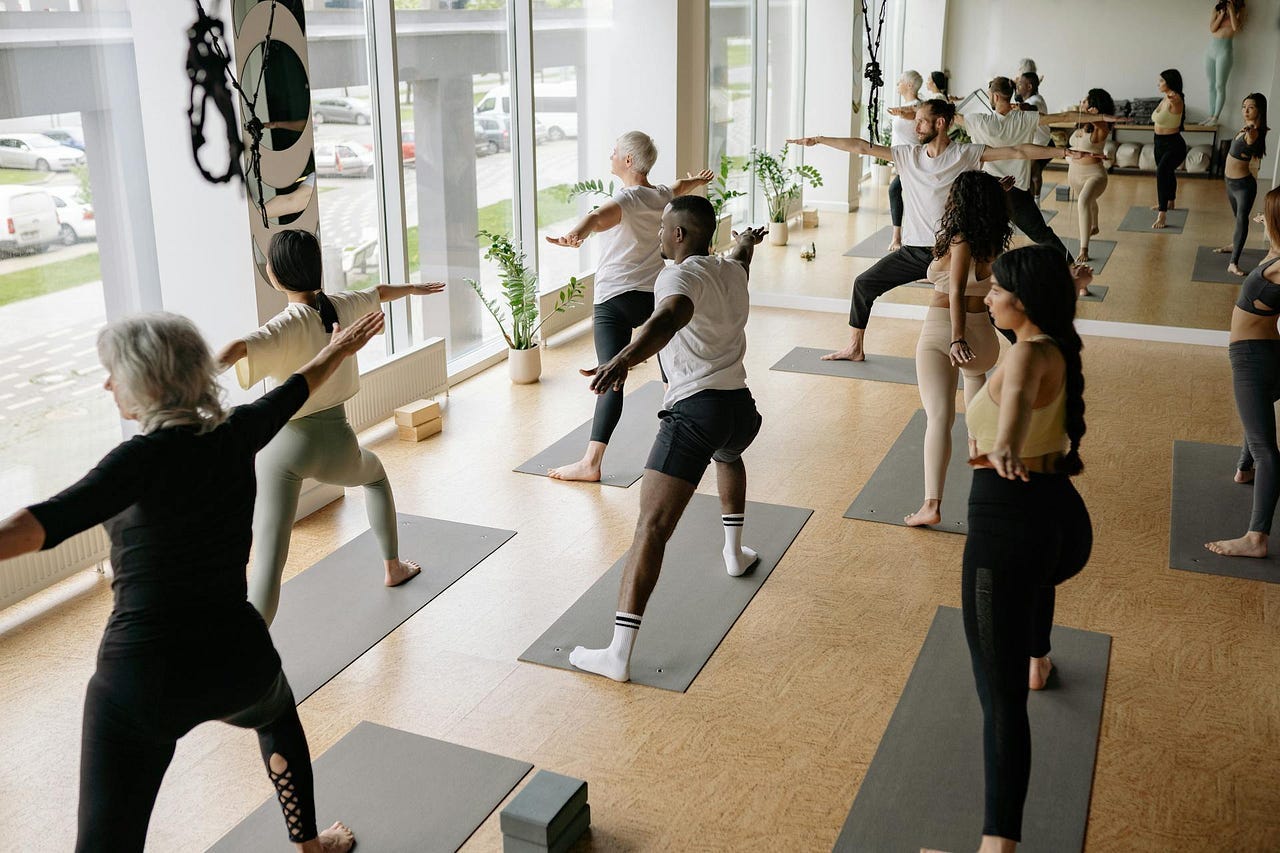Exercise and Mental Health: Context Matters
When, where, how and with whom you workout affects physical activity's effect on the mind
Welcome back to your weekly dose of wisdom and wellness, written by Wise & Well’s editor, Robert Roy Britt. Below you’ll find several informative and actionable stories by our team of journalists, topical experts and practicing professionals. First, this week’s news brief:

We’ve all heard that physical activity is good for the body and mind. What you don’t hear so much about is how some softer-tissue factors can play a role in whether a given session of exercise is good for mental health.
A new study reviewed research on the topic to find that context matters. If sport is your thing, as just one example, and you lose, you’re unlikely to experience the same mental boost achieved by the winners. Here’s how the researchers explain it:
While research shows that leisure-time physical activity — like going for a run, taking a yoga class or biking for fun — correlates with better mental health outcomes, these benefits may vary significantly depending on the environment and circumstances surrounding the activity … The same physical activity can feel very different depending on who the activity was done with, as well as where, when and how.
The researchers looked at subtler forms of physical activity, too, from sport to walking to various forms of solo and group activities.
“If you’re outside and it’s hot, and you’re having to walk to work, that’s part of the context,” said study co-author Patrick O’Connor, PhD, a professor of exercise science at the University of Georgia. “Or if you go and take a group exercise class — some instructors you really like, and some you don’t. So, that’s also part of the context.”
The findings are detailed in the journal Medicine & Science in Sports & Exercise.
The takeaway: Physical activity is vital to well-being, but it’s best to pick something you enjoy and, if possible, do it with someone you like. Here are some related resources from the Wise & Well archives to help you get moving:
Here are this week’s other feature stories:
I’m Only 35, But I Got Shingles?
As you inch beyond middle-age, you start hearing from friends and family about the perils of shingles. The miserable, itchy, painful rash arises seemingly out of nowhere, but it’s actually Round 2 of childhood chickenpox. As this writer learned, however, the dormant virus doesn’t always wait until old age to strike again. His story just might prompt you to get the shingles vaccine. By Sam Westreich, PhD
Can You Grow New Brain Cells?
You might’ve heard adults can’t grow new neurons. Or you might’ve heard we can. Such has been the state of science on this question. New research offers some of the most solid evidence yet that neurogenesis occurs in adult humans, but to what extent we still don’t know. Further research could lead to treatments for dementia and other neurodegenerative diseases. By Robert Roy Britt
Heart Attack Deaths Have Fallen by 89% Since 1970. But…
Dealing with the №1 killer of Americans and people in many other countries could be likened to a successful game of Whac-A-Mole. The percentage of Americans dying from heart attacks has fallen dramatically in the past half-century, which means people live longer and have a chance of dying from other types of heart disease. This physician sorts out what it all means to your health. By Stephen Schimpff MD, MACP
The Art and Science of Swearing
Whether we approve or disapprove of swearing, curse words are everywhere, and now more than ever. New research reveals the most common vulgarity, and which countries curse the most. And I ask a linguist: Why are we hearing and seeing more swearing now, online and even among politicians on camera, as happened recently when the US president dropped an F-bomb on TV? By Robert Roy Britt
I hope we’ve helped make your tomorrow a little better than today. Feel free to forward this newsletter to friends.
Cheers,
Rob

